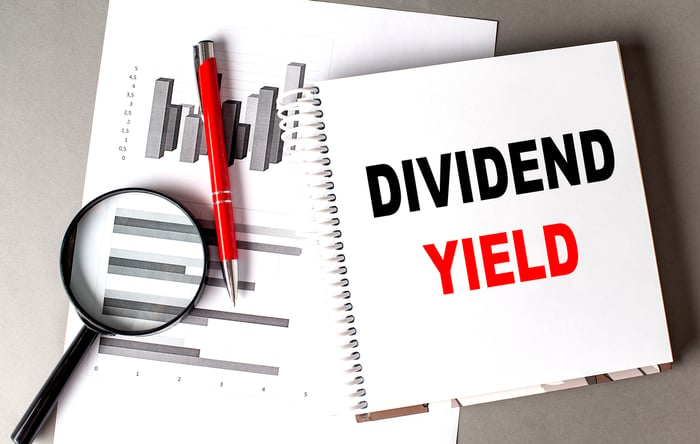Where Will AGNC Investment Be in 3 Years?
-
AGNC Investment is a mortgage REIT.
-
The company's value is basically the value of the mortgage securities it owns.
-
AGNC Investment's future is heavily dependent on where interest rates go.
AGNC Investment (AGNC -0.23%) is a real estate investment trust (REIT). However, it isn't a simple property-owning REIT -- it is a mortgage REIT. That changes the way investors should be thinking about AGNC Investment. A look at the last three years will help investors understand where AGNC Investment might end up over the next three years.
What does AGNC Investment do?
As noted, AGNC Investment is a mortgage REIT. It buys mortgages that have been pooled into bond-like securities, often using leverage in an attempt to enhance returns. This is drastically different from a property-owning REIT, which buys buildings and leases them out to tenants. AGNC Investment is a lot more like a mutual fund, given that the mortgage securities it buys trade all day long.

Image source: Getty Images.
In fact, AGNC Investment actually reports its tangible net book value each quarter. That figure is, essentially, equivalent to the net asset value of a mutual fund. And like a mutual fund, the best way to assess AGNC Investment's long-term performance is by looking at its total return, which assumes dividend reinvestment.
This is, basically, what the mREIT tells investors on its website. It specifically states that its objective is "favorable long-term stockholder returns with a substantial yield component." That's very different from a property-owning REIT.
There's nothing wrong with AGNC Investment's total return goal, but it changes the way in which investors should be looking at the mREIT's huge 16% or so dividend yield. This is very important if you are a dividend investor trying to live off of the income your portfolio generates.

AGNC data by YCharts
What has happened over the past three years?
The chart above highlights that the dividend (the orange line) has remained flat for three years. But AGNC Investment's share price has declined over that span even though the total return has remained in positive territory. That has happened because the mREIT pays out such a large dividend that the reinvestment of the dividend has more than offset the share price decline.
But what about the tangible net book value per share? That's basically what AGNC Investment is worth, like the NAV of a mutual fund. At the end of the first quarter of 2022, the tangible net book value per share was $13.12. At the end of the first quarter of 2025, that figure was down to $8.25. So it wasn't just the share price that fell, which is just a reflection of investor sentiment. The actual value of the portfolio declined, partly thanks to the huge dividend payments.
Given the size of the dividend, this trend is highly likely to continue over the next three years. That's the trade-off investors are making here if they buy this stock with plans to spend the dividend. You are, effectively, just getting capital back as the value of the portfolio declines.
Interest rates could save AGNC Investment's day
The caveat is that AGNC Investment owns a portfolio of bonds. The value of a bonds is impacted by interest rates. Rising rates generally lead to falling bond prices, and falling rates generally lead to rising bond prices. If rates were to fall from current levels, the value of AGNC Investment's mortgage securities portfolio could increase. But even if that were to happen, the huge dividend would likely still offset those gains over time, leading to further declines in the tangible net book value per share.
Basically, in three years, AGNC Investment's business model will still be less than desirable for dividend-focused investors. Total return investors are the target market for this stock today and will still be the target in three years.
Disclaimer: Investing carries risk. This is not financial advice. The above content should not be regarded as an offer, recommendation, or solicitation on acquiring or disposing of any financial products, any associated discussions, comments, or posts by author or other users should not be considered as such either. It is solely for general information purpose only, which does not consider your own investment objectives, financial situations or needs. TTM assumes no responsibility or warranty for the accuracy and completeness of the information, investors should do their own research and may seek professional advice before investing.
Most Discussed
- 1
- 2
- 3
- 4
- 5
- 6
- 7
- 8
- 9
- 10